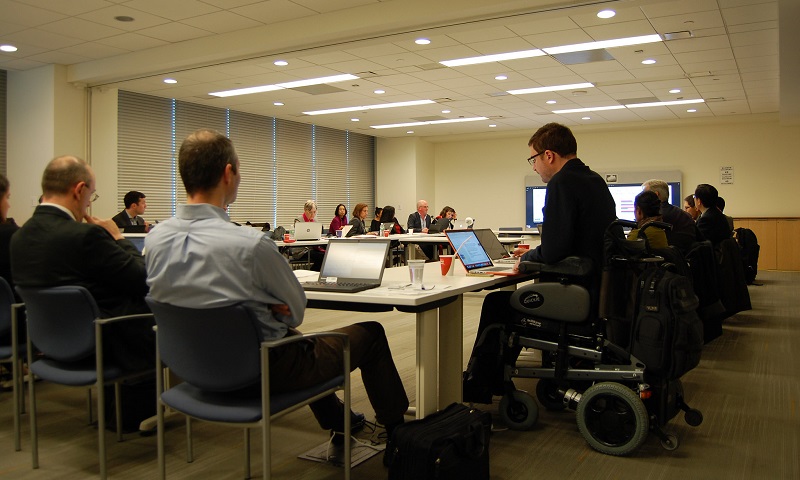
Breaking through the stigma barrier to access education and health care is just one of the critical challenges facing persons with disabilities, particularly those in developing countries.
That factor was among a range of key findings outlined to an expert meeting on Monitoring and Evaluation for Disability-Inclusive Development held at UN Headquarters in New York on November 28-29.
The meeting was facilitated by the Division for Social Policy and Development’s Secretariat for the Convention on the Rights of Persons with Disabilities (SCRPD) and involved researchers, experts and practitioners working in this field. The aim of the meeting was to take stock of progress made in monitoring and evaluation for disability-inclusive development, in the context of the 2030 Agenda.
A primary goal of the meeting was to discuss content for the inaugural United Nations flagship report on Disability and Development, due 2018. Akiko Ito and Maria Martinho, from the Secretariat for the Convention on the Rights of Persons with Disabilities, opened the meeting on this issue. Their presentation included an overview of the work toward disability-inclusive 2030 development and a draft outline and work plan for the report.
Other presenters had the opportunity to talk about their on-going work on disability and development focusing on priority issues such as education, employment, healthcare, access to information, invisible disabilities and disability data.
Jean-Francois Trani and Parul Bakhshi from Washington University informed the group of the “negative relationship associated with access to education and health care and persons with disabilities in low income countries”.
Mr Trani and Mr Bakhshi elaborated that stigma is an important consequence of inequalities experienced by persons with disabilities.. They explained that stigma can result in low self-esteem and reduced aspirations contributing to a cyclic pattern of limited access to services.
A consistent limitation in development work is access to accurate data on the success or failure of initiatives. This is usually due to the grassroots nature in which development programmes are often initiated.
Margaret Mbogoni, from UNSD Disability Statistics Programme Demographic and Social Statistics Division, DESA, reported that household surveys and census collection is currently the main source for data on disability. Ms Mbogoni explained “to ensure to fulfil new SDGs indicators requirements on the status of persons with disabilities, an unprecedented amount of statistics will need to be produced by National Statistical Systems.” Her address indicated that data collection will need to be uniform. To that end, training and guidelines for country programmes must be a priority.
The expert meeting provided a platform for information sharing and collaboration to ensure all SDGs are addressed in the 2018 flagship report. The meeting also highlighted areas requiring attention to ensure disability-inclusive development work is monitored and evaluated accurately and effectively to ensure that no person with a disability is left behind on the path to realising the 2030 Agenda.
To learn more about our work on persons with disabilities go to social.un.org/disabilities
Source & Copyright DSPD
 Welcome to the United Nations
Welcome to the United Nations